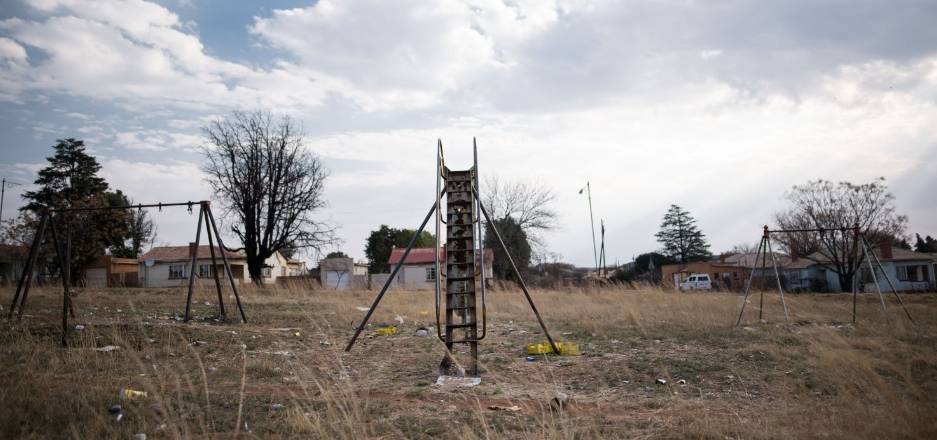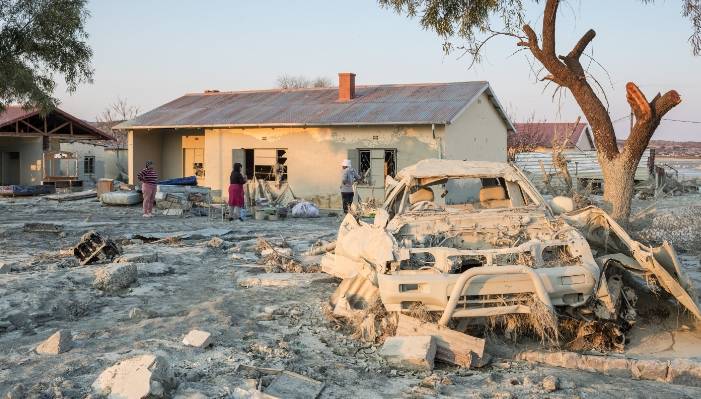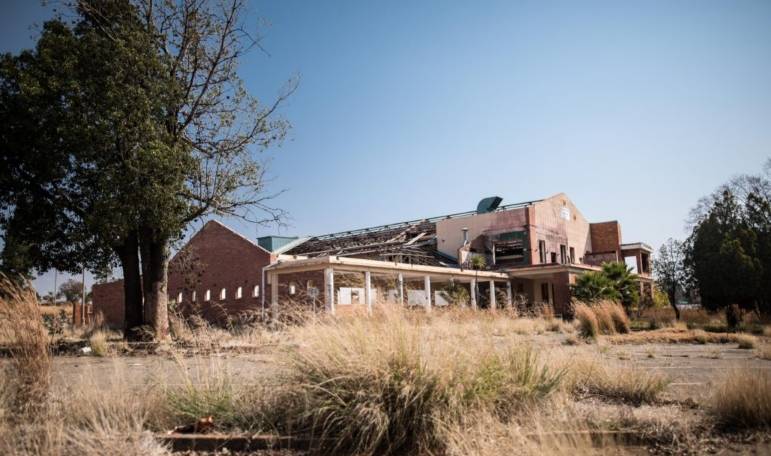The exploitative and exclusionary nature of South Africa’s mining industry can be traced back to the policies and practices of the colonial and apartheid eras. This legacy still influences the current economic, social, and legal framework of the industry.
The 2022 report by Lawyers for Human Rights (LHR) and Rosa Luxemburg Stiftung, titled “The Impact and Assessment of Improper Mine Closures in South Africa: Community Perspectives on Human Rights,” features testimonies from members of mining-affected communities. These accounts shed light on the demographic and socioeconomic realities that have emerged from the apartheid-era spatial planning and the persisting legacy of mining.
Communities impacted by mining have voiced their apprehension about the harmful environmental and social consequences that mining has brought upon their welfare and means of livelihood. Their concerns are heightened during periods of mine closures. Despite legislative efforts by the post-apartheid government to regulate mining activities and reform the industry, the experiences of these communities suggest that these measures have not been sufficient in truly transforming and mitigating the detrimental effects of mining on their daily existence.

Communities believe that the harmful effects of mining and ongoing inequality are sustained by the misconduct of both national and transnational corporations, as well as the inadequate oversight by the state – either through intention or negligence – over their actions.
By investigating the state and repercussions of improper mine closures in South Africa and taking into account the viewpoints of affected communities, LHR has been able to evaluate the genuine human expense of mining endeavors in the country. It has become evident that mining companies are still exploiting the land used by black communities for its resources, leaving these communities at a disadvantage.
The enactment of the Mineral and Petroleum Resources Development Act (MPRDA) in 2002 was a crucial measure in tackling inequality in the mining industry. The MPRDA recognizes that the mineral resources of South Africa are a shared heritage of all its inhabitants. As per the act, mining companies are mandated to submit a Social and Labour Plan (SLP) with their mining application, which outlines their plans to benefit the community. SLPs are legally binding instruments that require companies to promote employment, enhance social and economic well-being, and support community development in the areas they operate.
Despite the legal requirements for SLPs, mining communities still face significant poverty due to the absence of consultation with them regarding the type of development that would be most beneficial, and the failure of mining companies to fulfil their commitments in the SLPs. LHR’s research reveals that even though mining communities are already in a vulnerable socioeconomic position during active mining, their situation worsens significantly during mine closures, when the primary sources of economic activity – mining and the related local economies – come to a halt.

Inequality remains a prominent aspect of mining in South Africa, with an emerging trend of mining companies evading their responsibilities during and after mining activities. Affected communities have voiced their apprehension about the inadequate regulatory oversight by the Department of Mineral Resources and Energy (DMRE), particularly during mine closures. Studies demonstrate that despite the existence of formal legislative frameworks and guidelines for mine closures, the absence of effective state regulation and corporate impunity have led to a persisting pattern of improper closures or the desertion of mines, giving rise to prolonged environmental, economic, and social challenges for mining-affected communities.
Rather than officially closing down a mine, several mining companies opt to suspend operations, citing temporary care and maintenance, and proceed to renew the temporary suspension for several years or even indefinitely. Another approach is to sell the mines to smaller companies that lack the requisite resources to ensure responsible mine closure in adherence to legal requirements. In certain instances, mining companies abandon the mines altogether.
Improper mine closures often result in the abandonment of mine shafts and pits without proper fencing, and the failure to manage the detrimental effects of mining waste such as tailing dams and waste rock dumps. In a study conducted in 2017, the Bench Marks Foundation, a non-governmental organisation that focuses on research and advocacy, highlighted that due to the significant amount of waste present in mine dumps, communities are exposed to hazardous levels of heavy metals like lead, copper, silica, and zinc. These metals are accountable for a host of health issues that affect communities, including neurological, cardiovascular, respiratory, and kidney-related illnesses.
As of 2016, the Council of Geoscience reported that South Africa had approximately 6,000 “derelict and ownerless” mines. While the Department of Mineral Resources and Energy (DMRE) has made some efforts to address the harmful effects of improper mine closures, especially in relation to asbestos mines, it remains uncertain what specific measures the department has taken to tackle the wider problem of derelict and ownerless mines and the broader issue of improper mine closures.

Due to inadequate regulation and non-compliance with legislation, the negative consequences of mining and improper mine closure fall disproportionately on the affected communities. These include:
- environmental degradation,
- health hazards,
- socioeconomic disparities,
- and public safety issues.
Improper mine closures have led to the abandonment of both mines and mining communities, as well as the social obligations owed to these communities. Due to a lack of effective regulation, the relationship between mining activities and the livelihoods of host communities has created a power dynamic where communities are reliant on the mine for economic survival. As a result, when mines are closed or left on indefinite care and maintenance, the impact on these communities’ livelihoods is significant. To address these challenges, it is crucial to consider what a progressive, rights-protective, and sustainable post-mining community would look like and what measures are necessary to achieve this goal.
To ensure effective mine closures, it is important to plan properly throughout the entire lifecycle of a mine and not just towards the end of its lifespan. Regulatory oversight and community consultation should be prioritized at every stage of mining, including mine closure. Mining companies must take responsibility for their actions and their impact on communities.
In South Africa’s mining history, inequality has been a persistent problem. To address this, it’s essential to involve communities in all stages of mining, including decision-making processes, mine ownership, and regulatory frameworks. This will require closing the gaps in existing legislation that allow mining companies to neglect their responsibilities and exploit communities. The ultimate goal should be shared prosperity, and communities should have the right to determine the kind of development that benefits them.

